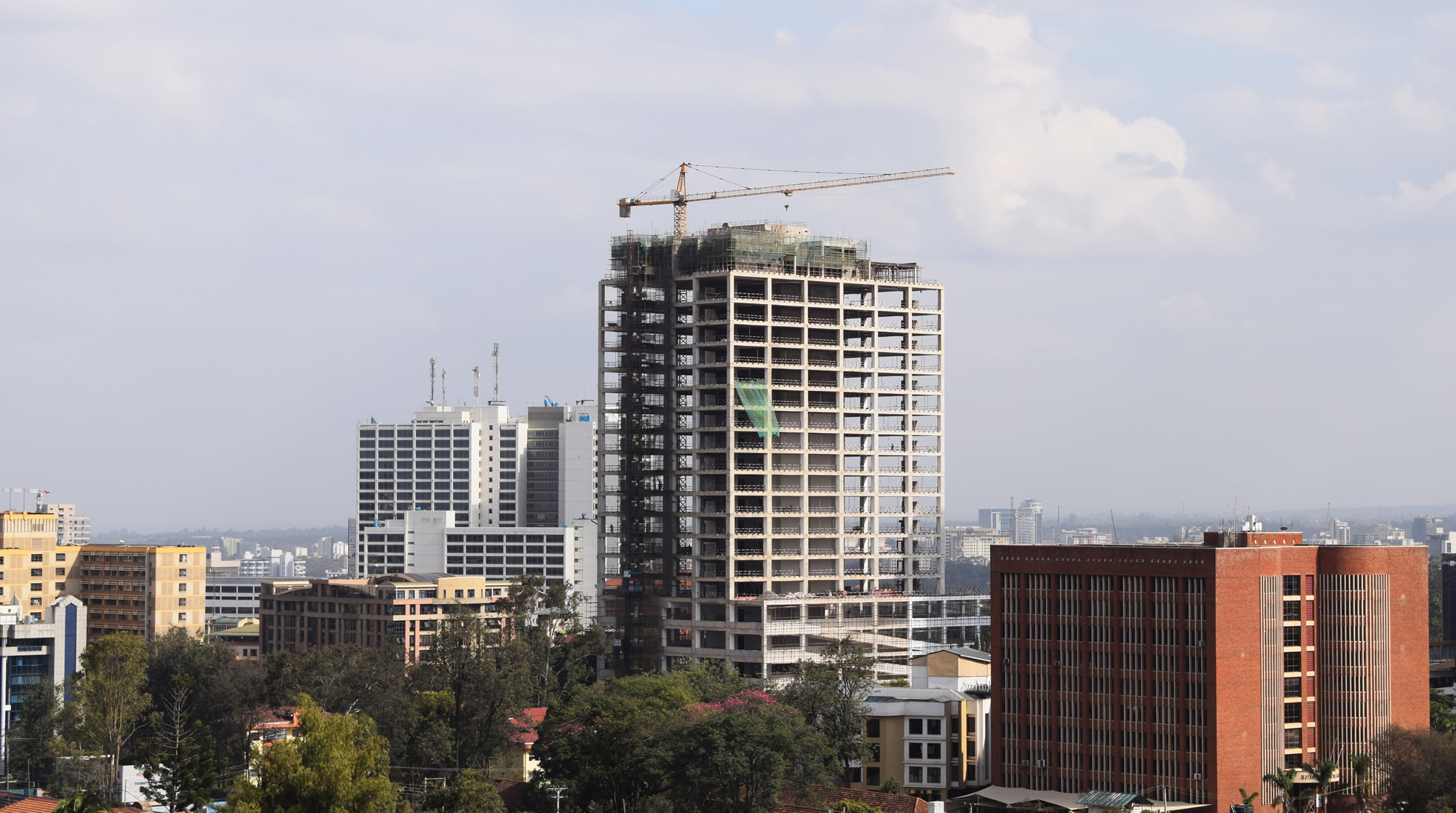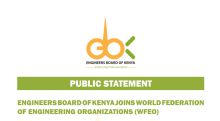Who We Are
ABOUT EBK
The Engineers Board of Kenya is a regulatory body established under Section 3(1) of the engineers Act 2011 to succeed the Engineers Registration Board (ERB) established by the Engineers Registration Act, Cap 530 (1969).
A new Strategic Plan 2023/2024 2027/2028 has been developed to guide the Boards actions and decisions within the stated period. This has impacted in the development of the Boards new Vision, Mission, Core Values and Strategic Objectives.
OUR VISION
Safe and sustainable engineering infrastructure.
OUR MISSION
To ensure production of globally competitive engineers and quality engineering services through regulation, capacity building and enforcing compliance with set engineering standards to meet the current and future needs of society.
OUR VALUES
I-CARE
· Integrity
· Customer-centric
· Accountability
· Respect
· Excellence
Our Mandate
Section 6 of the Engineers Act 2011mandates the Board to:
- Registration of engineers and engineering consulting firms;
- Regulation of engineering professional services;
- Setting of engineering standards;
- Development and general practice of engineering
EBKs Strategic Objectives
I. To ensure safety, quality andreliability of professional engineering services.
II. To improve the capacity ofengineers and engineering firms
III. To enhance liberalization ofprofessional engineering services
IV. To strengthen strategicpartnerships and collaborations
V. To strengthen institutionalcapacity
History of the Engineers Board of Kenya(EBK)
The regulation of engineering in Kenya weredone using the British Standards until 1969 where Engineers Registration Actwas enacted to establish the Engineers Registration Board (ERB).
This board was entrusted with the vitalresponsibility of registering and licensing engineers, thus ensuring thequality and professionalism of engineering services in Kenya.
As the engineering landscape evolved, theexisting legislation, known as Cap 530, needed to be modernized to address thefull spectrum of engineering. This meant encompassing engineering education,training, and practice in a comprehensive and effective legal framework. Tomeet this need, the Engineers Act was enacted in 2011, assented on 27th January2012 and commenced by Minister of Roads on 14th September 2012 leading to therepeal of the Engineers Registration Act, Cap 530 of 1969.
The Engineers Act 2011, led to theestablishment of the Engineers Board of Kenya (EBK), expanding its mandate tonot only register engineers and engineering consulting firms but also toregulate engineering professional services, set industry standards, and promotethe overall practice of engineering.




